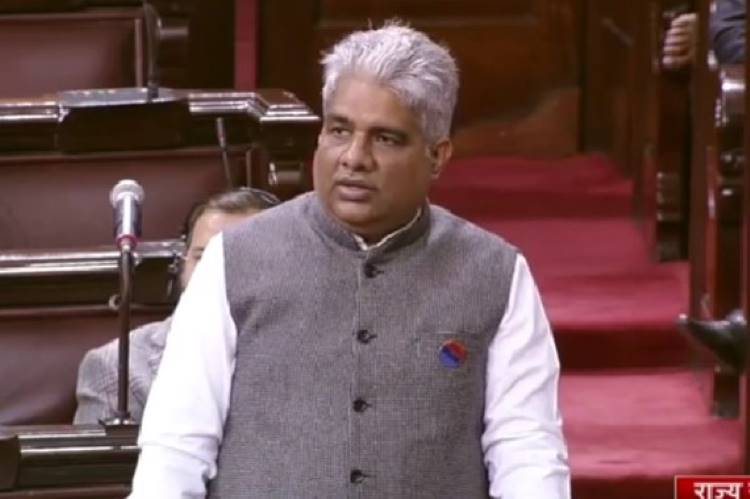
The Parliament on Friday passed the Water (Prevention and Control of Pollution) Amendment Bill, 2024 to enhance India’s water conservation and pollution control measures. This amendment amended the Water (Prevention and Control of Pollution) Act of 1974, which established the central and state pollution control boards (CPCB and SPCBs) to address water pollution.
The amendment marks a pivotal shift in the regulatory framework, emphasising decriminalisation of certain offences, imposition of penalties, and strengthening the governance of water pollution control mechanisms. The guidelines under the amended Act will need to take into account the autonomy of state pollution control boards.
READ I India’s climate change woes push healthcare to the brink
Here are the major implications of the Water (Prevention and Control of Pollution) Amendment Bill, 2024:
Decriminalisation and penalties: One of the most important changes introduced by the Amendment is the decriminalisation of several violations previously punishable under the 1974 Act, replacing them with financial penalties ranging from Rs 10,000 to Rs 15 lakh. This approach is designed to deter non-compliance through economic disincentives rather than criminal prosecution, aiming to foster a more compliance-oriented business environment.
Consent exemptions for industries: The Bill introduces provisions that allow the Union government, in consultation with the CPCB, to exempt certain categories of industrial plants from obtaining prior consent for establishment if they are likely to discharge sewage or other pollutants. This is a significant shift aimed at simplifying regulatory procedures for specific industries, potentially boosting economic activities while ensuring environmental safeguards are in place.
Appointment of chairman of state boards: The amendment stipulates that the appointment of the chairman of state pollution control boards will now be governed by processes and terms prescribed by the Union government. This change seeks to standardise the governance of state boards, ensuring uniformity in the fight against water pollution across states.
Enhanced penalties and adjudication: The amendment specifies hefty penalties for the discharge of polluting matter into water bodies and introduces an adjudication process for determining penalties, with the adjudicating officer being a high-ranking government official. Penalties collected will contribute to the Environment Protection Fund, aligning financial penalties with environmental conservation efforts.
Appeals and legal proceedings: The amendment provides for appeals against orders passed by adjudicating officers to be made before the National Green Tribunal, subject to the deposit of 10% of the levied penalty. This procedural update is aimed at streamlining the appeals process and ensuring expedited justice in environmental matters.
Accountability of government: A novel provision holds the heads of government departments financially accountable for violations of the Act by their departments, with penalties equating to one month of their basic salary. This is intended to foster a culture of responsibility and due diligence within government operations affecting water bodies.
The Bill’s strategic focus
During the debate on the Bill, Union minister for environment Bhupender Yadav underscored the government’s commitment to major environmental initiatives, such as the Namami Gange Project and the Amrit Sarovar scheme. The minister’s assurance on balancing industrial development with environmental protection, alongside a call for environmental awareness and the prudent use of natural resources over reliance on artificial intelligence, highlights the strategic direction of the amendment.

Initially, the amendment will be applicable in Himachal Pradesh, Rajasthan, and the Union Territories, with provisions for other states to adopt its applicability through resolutions. This phased implementation strategy allows for a tailored approach, accommodating regional variations in water pollution challenges and governance structures.
The world’s major economies have already made similar changes in their water pollution frameworks. The European Union’s Industrial Emissions Directive (IED) emphasises permitting and financial penalties. Similarly, China’s Environmental Protection Law, revised in 2021, prioritises fines and corrective actions over criminal prosecution for minor violations. However, key differences remain. The EU and China, for instance, retain criminal liability for severe offenses, suggesting a more nuanced approach compared with India’s blanket decriminalisation. Additionally, both the EU and China have established emissions trading schemes, a tool not yet implemented in India’s amended law.
Despite these variations, a global convergence towards economic and preventive measures in water pollution control is evident. As major economies balance industrial development and environmental sustainability, innovative legal frameworks worldwide pave the way for a cleaner future, ensuring our shared water resources remain healthy and vibrant.
The Water (Prevention and Control of Pollution) Amendment Bill, 2024 represents a significant overhaul of India’s water pollution control framework. By shifting from a punitive to a preventive and financially disincentivising approach, the amendment aims to foster a more responsible and environmentally conscious industrial and governmental landscape. These changes are poised to contribute significantly to the country’s environmental sustainability efforts, ensuring cleaner water bodies and a healthier environment for future generations.

